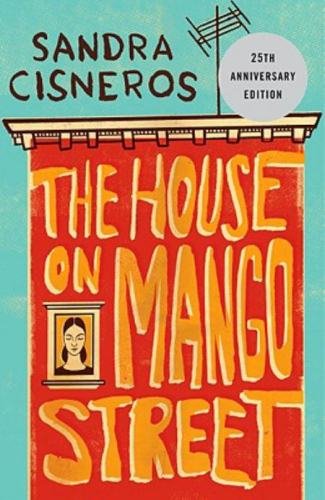All Nonfiction
- Bullying
- Books
- Academic
- Author Interviews
- Celebrity interviews
- College Articles
- College Essays
- Educator of the Year
- Heroes
- Interviews
- Memoir
- Personal Experience
- Sports
- Travel & Culture
All Opinions
- Bullying
- Current Events / Politics
- Discrimination
- Drugs / Alcohol / Smoking
- Entertainment / Celebrities
- Environment
- Love / Relationships
- Movies / Music / TV
- Pop Culture / Trends
- School / College
- Social Issues / Civics
- Spirituality / Religion
- Sports / Hobbies
All Hot Topics
- Bullying
- Community Service
- Environment
- Health
- Letters to the Editor
- Pride & Prejudice
- What Matters
- Back
Summer Guide
- Program Links
- Program Reviews
- Back
College Guide
- College Links
- College Reviews
- College Essays
- College Articles
- Back
The House on Mango Street by Sandra Cisneros
“The House on Mango Street” by Sandra Cisneros is a fictional story about a Hispanic girl growing up in Chicago. The little girl, Esperanza, tells her story through a series of extremely short stories. They range from stories of her interactions with neighbors, workers, and friends to stories of her Hispanic family life.
Cisneros has published many successful works including “Carmelo” and multiple poetry and short story books. “The House on Mango Street” is one of her most influential works. Selling over two million copies, it has become required reading for many middle and high schools. It has also been translated into various languages.
The book does not follow a plotline, instead it is made up of vignettes. This, however, does not mean it lacks in conflict and resolution; her whole life is based off the constant balance between obstacles and lessons. Esperanza’s stories can be as short as one or two pages, which makes for easy reading. In some cases, reading was almost too easy and fast. It is best intended for middle school or young high schools. Given its simplicity, I did not expect Cisneros’s little character to be filled with such wisdom and understanding of the strange world around her.
Truth and reality beam out of the book. Cisnero shines a light on the true melting-pot identity of America that continually affects life today. It is an identity in which not all that are born in America are truly raised in America. Esperanza explains her difficulty in living on the edge between English and Spanish; “At school, they say my name funny as if the syllables were made out of tin and hurt the roof of your mouth… But in Spanish, my name is made out of a softer something, like silver.” She must learn to accept her alienation in order to fully absorb its beauty.
Cisneros’s writing has a distinctive style and syntax, and in this way the book is hardly perfect. In fact, the book is filled grammar mistakes and a few awkward sentences. The style and syntax adds to the innocence behind Esperanza’s story by making her appear slightly uneducated yet very intuitive and capable. In addition, any direct quotes are not put in quotation marks and are simply integrated into the writing and Esperanza’s train of though. Writing the way a child’s mind thinks, Cisneros succeeds in creating in authentic character though her style and syntax; however, it can be confusing at times.
As Esperanza grows, the story turns bittersweet. She doesn’t want to be connected to the house on Mango Street; she wishes to disconnect herself from her impoverished and stereotypically-plagued roots. She dreams of a house of her own, yet sadly, the only way to escape is by leaving her family and friends all in hopes of returning to rescue them. In her situation being selfish is not always a bad thing.
What makes her life as a Mexican-American so bad that it forces her hopes to take her away from her family and her home? Is it the fact that people are afraid of her neighborhood? Thanks to stereotypes, people tend to be more afraid of ethnic neighborhoods such as Hispanic neighborhoods than of white neighborhoods. Or is the fact that she sees her friend show up to school “all beaten and black?” Stereotypes might fit on some people but not on Esperanza. She explores every aspect and human interaction of her life, and every detail is described in “The House on Mango Street.” Eventually she comes to realize, it is not what she wants, and it’s hard to blame her. Imagine being a different race; it’s not so bad, until racism is accounted for. And while Esperanza, the little heroine, wants to leave her ugly little house on Mango Street, can you ever really disconnect yourself from your roots?
Similar Articles
JOIN THE DISCUSSION
This article has 1 comment.


0 articles 0 photos 1 comment